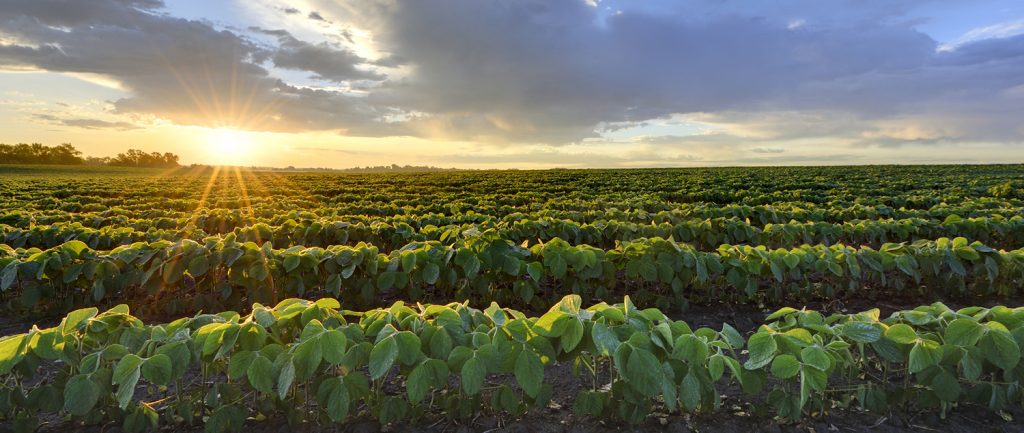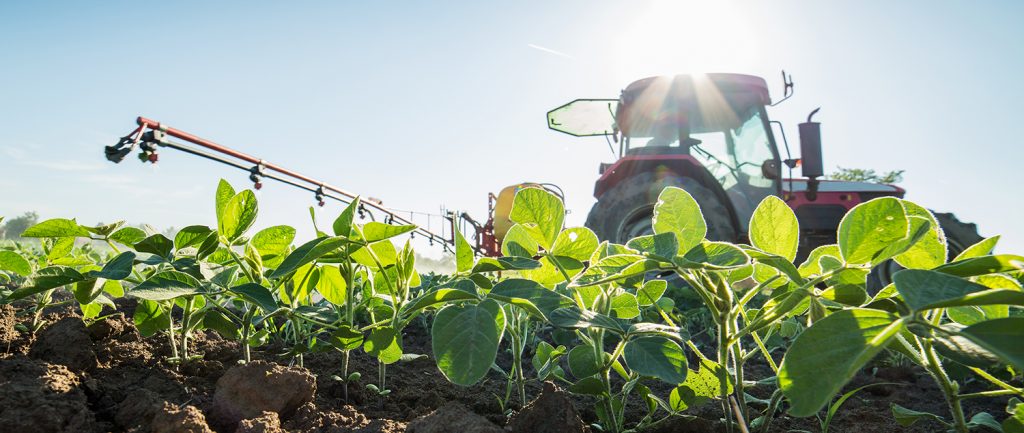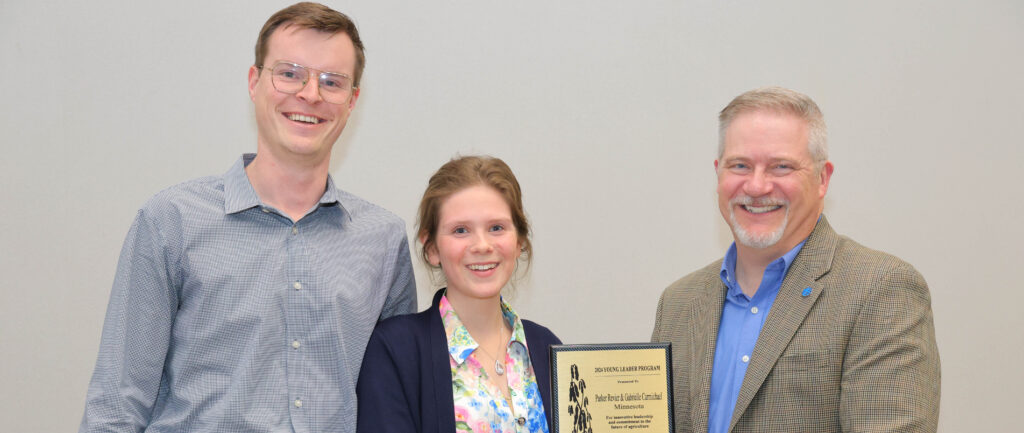This story was first featured in the January-February 2019 issue of Soybean Business. Click here to read the online version of the magazine.
From unpredictable weather to tariffs to record low soybean prices to regulatory threats from St. Paul, farmers could easily summarize 2018 in five words: We can’t catch a break.
“2018 was a year we will all remember,” says Minnesota Soybean Growers Association (MSGA) Vice President Jamie Beyer. “Minnesota farmers are ready for a fresh start in 2019.”
And that it will be. New year. New governor. New outlook.
MSGA is eager to begin the next legislative session, led by a new but familiar face – Joe Smentek.
“Transitioning into this role has allowed us (MSGA) to take a more hands-on approach when it comes to our legislative efforts,” says Smentek, who was recently promoted from director of public affairs to MSGA executive director. “With the many new faces in St. Paul, it is critical we continue building on our already-established relationship with Gov.-Elect Tim Walz and his administration, as well as connect with the new House and Senate officials.”
Smentek, who met with Walz’s staff on several MSGA priorities prior to him taking office, says he has his to-do list ready to go come Jan. 8.
“The last session did not exactly end the way we wanted,” he says, referencing the myriad vetoes by outgoing Gov. Mark Dayton. “But we are hopeful with the new set of blood, MSGA will find success, not only on last year’s items, but with the new initiatives we are excited to bring forward.”
MSGA priority issues
Biennium Budget
The number one issue the Minnesota legislature will be tackling in the next legislative session will be establishing the 2020 – 2021 biennium budget.
“It won’t be to anyone’s surprise there will be surplus dollars available,” says Cory Bennett, MSGA’s lobbyist. “Mainly because some of those dollars didn’t get spent on the tax bill last year. With the possibility of a sizeable surplus, MSGA is looking for things we can try and target in our agricultural budget, not only what we didn’t receive last year because of vetoes, but we’re also looking at some new initiatives.”
Currently, the agricultural budget is the smallest in the state of Minnesota, but still important to MSGA’s mission.
“MSGA will continue advocating for research dollars, but also mental health initiatives and dollars,” Bennett says. “We didn’t receive those dollars for mental health last year, but we understand there is a crisis out there and the need to access affordable health care, especially in mental health for struggling farm families.”

New to the list this year is an initiative called the Minnesota Soy Innovation Campus.
“We’re very passionate about this,” Bennett says. “This is going to be a collaboration in northwestern Minnesota near Crookston. MSGA is looking to build a crush facility, focusing on biodiesel and specialty soybeans. MSGA will be headed to the legislature this session to ask for assistance. We understand this will be a big ask, but certainly for value-added agriculture in that area, and for the state, we see there’s a benefit and importance for our growers.”
Tax bill
Last year, much of the legislature’s time was spent on the two tax bills. Both were met with vetoes by Gov. Dayton.
“The tax bill will be MSGA’s next big priority,” Bennett says. “When the federal government passed their tax bill last year, it certainly meant some opportunities for Minnesota’s farmers and agribusinesses across the state. But unfortunately, with last year’s vetoes, Section 179 farm depreciation was pushed to this year.”
Currently, Minnesota is at $25,000 per year farm depreciation with the federal government at $1 million per year.
Along with the Section 179 farm depreciation, MSGA will also be addressing the homestead tax clarification.
Buffer compensation
One issue in dire need of addressing since the passing of the buffer law is compensation for the land put into buffer strips.
“MSGA is looking for ways to ensure farmers are being compensated for the productive agricultural lands that are no longer productive due to the state mandate,” Smentek says. “MSGA will be looking at several initiatives in order to try and make up for that loss.”
MSGA also wants to ensure removing property tax from the buffer land will not just be shifted to the farmer’s productive ag land or other industries in that area.
“We want the state to recognize if there’s a public benefit to these water-quality buffers, they should not be putting the burden on the individual farmers, but rather paying for it in the form of local government aid,” Smentek says.
Health care
In recent years, the legislature has tried combatting health care insurance premiums, but staggering numbers still exist across Minnesota.
“Health care was a hot issue throughout the campaign trail,” Bennett says. “This is something we know the legislature will continue addressing, and needs to address. But it all comes down to access, quality and affordability – and that is a big concern for our farmers.”
Bennett says MSGA will continue sharing with legislators personal stories of farm families struggling with health care costs and accessibility.
Seed regulatory certainty
One of MSGA’s proactive initiatives this year will be seed regulatory certainty.
“Currently, Minnesota has a pesticide and fertilizer pre-emption, meaning the Minnesota Commissioner of Agriculture sets the standard or regulation,” Bennett says. “But in regards to seed, the commissioner does not have authority, but rather the local government. This becomes problematic if you were to look at the majority of our farmers, because many of them farm across county lines or across township lines.”
Smentek says he believes the commissioner already has this authority but clarification is needed.
“We don’t need our farmers cleaning out their planters at the township line because of different seed regulations at the local level,” he says.
Transportation
Transportation and the need for additional funding in rural areas continues to make the lineup for MSGA.
“This will be another focal point for us this year,” Bennett says. “MSGA will focus on how to interject more money into the system for roads and bridges and more importantly, how that money will be distributed between rural Minnesota and the metro.”
Biodiesel
2018 was a pivotal year for biodiesel, moving to a 20 percent biodiesel blend (B20) requirement during the summer months. But with every legislative session, MSGA has to prepare for unfavorable legislation.
“Biodiesel’s move to B20 during the summer months has been deemed a success up until this point,” Smentek says. “But we have to be ready to protect the industry. From protecting the minimum blending requirement to making sure there are no added exemptions, we’ll be watching this very closely.”
Other 2019 legislative priorities:
- Ditch mowing;
- Palmer amaranth eradication along with other potential invasive species;
- Soil loss regulation;
- Nitrogen Fertilizer Rule/Groundwater Protection Act authority.





